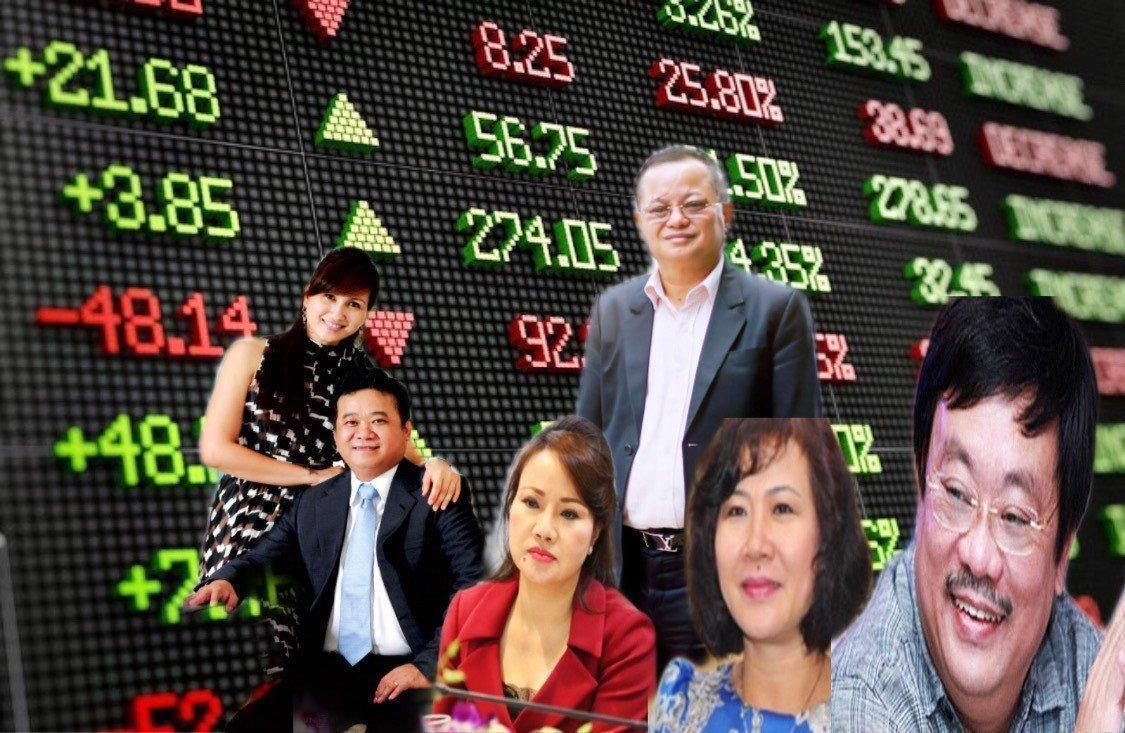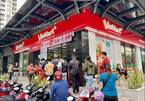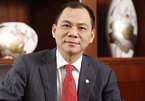
The Panama Papers released in May 2016 included 189 Vietnamese and 19 offshore and 23 intermediary companies. Some individuals on the list said that it was legal to make investments in areas with attractive tax incentives.
This was not the first time that Vietnamese billionaires assets and transactions related to investments overseas were exposed.
In early 2015, ICJC documents showed 100,000 clients from more than 200 countries having accounts at the HSBC Swiss branch in 1988-2007. There were 26 clients related to Vietnam on the list, with total assets of $37.5 million. The richest individual had $12.2 million.
Some years ago, a British real estate firm came to Hanoi to sell houses in London to Vietnamese people. At that time, a high-ranking official said that buying houses overseas was not feasible because of the regulations which restrict Vietnamese people’s purchases of properties overseas and payments abroad.
However, an article from Coldwell Banker Singapore published a short time later showed that the Vietnamese purchases of houses in Singapore accounted for 3.2 percent of total real estate transactions.
More recently, an unofficial marketing program in HCM City offered houses in the US. A US real estate consultancy firm with a HCM City representative office offered to sell houses valued at $500,000. The firm said many people registered to buy houses with the total value of hundreds of thousand of dollars.
The names of some Vietnamese owning big properties in Australia have also been released.
| Analysts believe that the number of wealthy and super wealthy people in Vietnam is increasing rapidly, but they remain mysterious to most Vietnamese. There is very little information about their assets and transactions. |
Analysts believe that the number of wealthy and super wealthy people in Vietnam is increasing rapidly, but they remain mysterious to most Vietnamese. There is very little information about their assets and transactions.
In late 2014, a Swiss bank released a report about super wealthy people in the world, who have assets of at least $30 million. There were 210 Vietnamese individuals on the list with total assets of $20 billion, a two-fold increase in both the number of wealthy people and their asset value.
In mid-May 2021, official statistics showed that 145 wealthy Vietnamese individuals have stock assets valued at least VND660 billion.
However, experts believe that the real number of billionaires is much higher, because there are many hidden names.
Reports by the World Bank and ANZ all show that the number of super wealthy people and middle-class people in Vietnam has been soaring in the last decade.
Knight Frank predicted that the number of Vietnamese super wealthy people would double in the next 10 years to 300, the sharpest growth rate in the world.
However, in all these reports, there are no specific names.
Hidden information
In early 2019, Thaco, owned by President Tran Ba Duong, consulted with its shareholders about the issuance of 30.3 million shares to the strategic shareholder - Jardine Cycle & Carriage at the price of VND128,500 per share.
After the deal, worth VND3.9 trillion ($160.8 million), the foreign partner would raise its ownership ratio from 25.23 percent to 26.57 percent, while Thaco value would be $9.4 billion.
In 2018, Duong, with total asset value of $1.7 billion, was added by Forbes to the list of the world’s dollar billionaires. However, with the new valuation, Duong and his family members would have $6.1 billion.
Since Thaco’s shares are being traded in the OTC market, not on the official bourses, Duong is not on the list of the richest stock billionaires.
Thaco canceled the public company registration earlier this year, which means that Thaco won’t have to publicize its financial figures and shareholders’ meeting resolutions, and the information about the billionaire will be more private.
Novaland President Bui Thanh Nhon also has not been added to Forbes’ list of the world’s billionaires, but people believe that his assets exceeded $1 billion years ago.
In 2018, Competing with Giants, a book published by Forbesbooks showed that Tran Quy Thanh once refused a deal worth $2.5 billion to buy Tan Hiep Phat’s shares suggested by Coca Cola seven years ago. If Thanh had accepted the deal, he would have been named on the list.
Trinh Van Quyet, President of FLC, is also an unrecognized dollar billionaire.
Prior to that, Dao Hong Tuyen, known as Tuan Chau Island King, once revealed that he had $1-2 billion.
Many other names are also real billionaires with assets of over $1 billion, though they have not been named on any lists, including Do Quang Hien, President of T&T Group; Truong My Lan, President of Van Thinh Phat Group; Dang Van Thanh of Thanh Thanh Cong Group; Johnathan Hanh Nguyen, known as the Branded Goods King, Le Van Kiem of Long Thanh Goft, and Huynh Uy Dung of Dai Nam.
These businesspeople will officially become billionaires once the corporations are listed on the bourse.
The other big names include Nguyen Thi Nga, President of BRG and SeABank; Vu Van Tien of Geleximco; and Duong Cong Minh of Him Lam Real Estate Group and Sacombank.
Nguyen Van Truong in Ninh Binh was considered a dollar billionaire after he announced impressive mega investment projects. In 2016, his Xuan Truong Enterprise kicked off the construction of the Ho Nui Coc National Tourism Complex with total investment capital of VND15 trillion. He is also the investor of the Trang An – Bai Dinh Pagoda Tourism Complex in Ninh Binh and Tam Chuc Complex in Ha Nam.
Duy Anh

Attracting billions of USD, VN billionaire acquires many local brands
The flow of international capital has helped Vietnamese businesses grow quickly and build multi-sectoral businesses via big mergers and acquisition deals.

With new 'business model', billionaire Pham Nhat Vuong could earn $1.5 billion
Billionaire Pham Nhat Vuong has launched a new system that is expected to help Vinhomes bring in about $1.5 billion in 2021.